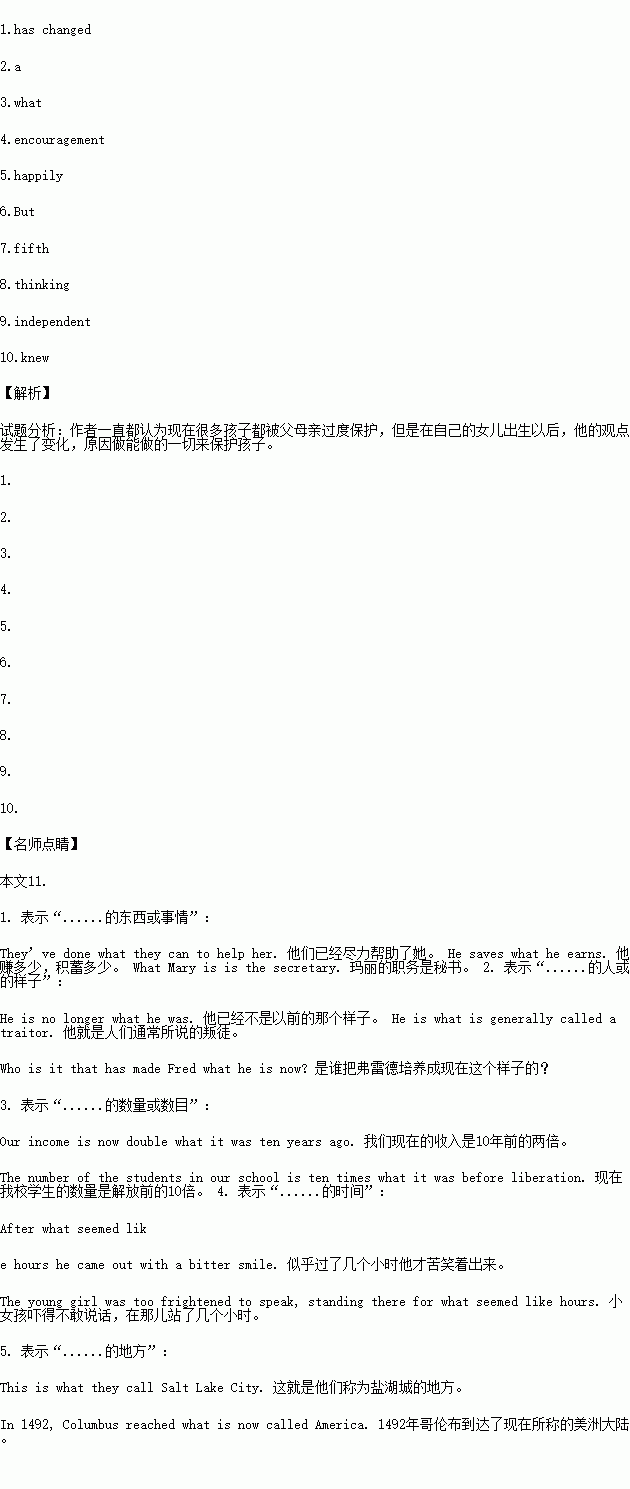题目内容
阅读下面材料, 在空白处填入适当的内容(1个单词)或括号内单词的正确形式。
Is there such a thing as being “over-protective”?
I can honestly say that my answer to that question 1. (change) dramatically(戏剧性地)since I became a parent.
Before the birth of my daughter, I taught at 2. private school, often viewing my students as over-protected, worrying 3. would happen when they went on to middle schools.
Some did fine, and some did not. Some needed constant pats on the back, words of 4. (encourage) and extra support, which I 5. (happy) gave. Others were content on their own, needing little or no interaction(互动)with their teacher. 6. for the most part, graduates would go on for higher schooling.
I’d always supposed their parents were over-protective, for they were the ones that still walked their 7. (five) graders into the classroom and met them at the school gate.
Admittedly, I laughed at those parents, 8. (think) their children would never learn to be 9. (independence) if they didn’t let go just a little. Then I had my own daughter. The moment I looked at her little face, I 10. (know) I’d do everything in my power to protect her and make sure she always felt safe!
 心算口算巧算一课一练系列答案
心算口算巧算一课一练系列答案 应用题作业本系列答案
应用题作业本系列答案
